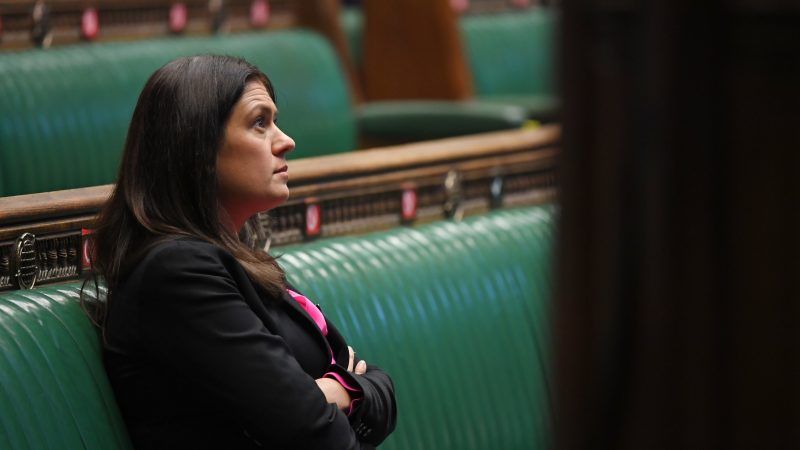
Labour has demanded that Liz Truss and Kwasi Kwarteng return their ministerial severance payments, arguing that their “mismanagement of the economy” has resulted in families across the country facing soaring mortgage payments.
The party has tabled an opposition day motion to be debated by MPs today, which states that the Commons “censures” the former Prime Minister and Chancellor for their handling of the economy. The motion calls on Truss and Kwarteng to “waive at least £6,000 of their ministerial severance payments”.
Commenting ahead of the debate, Lisa Nandy said: “It is abhorrent that a Prime Minister and Chancellor should be able to crash the economy, costing hard-working families hundreds of months a month in higher mortgage payments and then pocket a severance payment worth thousands for themselves.”
The Shadow Levelling Up Secretary said Rishi Sunak, Jeremy Hunt and other Tory MPs would be given the opportunity to “undo that disgrace” during the debate on Labour’s motion.
She added: “Britain literally cannot afford any more of this Tory government. Millions of families are struggling to get by because the Conservatives crashed the economy and pushed up mortgage costs.
“We need a government that will secure our economy and get it growing again by investing in all people and all parts of the United Kingdom.”
Labour Party analysis of Office for National Statistics (ONS) data found that more than 1.7 million mortgage holders are currently struggling with payments. Almost half of the respondents to the ONS survey reported that they have been worried in the past two weeks about changes to the interest rates on their mortgage.
Truss announced that she was stepping down as Prime Minister last month after just six weeks in office amid the ongoing fallout from her disastrous ‘mini-Budget’.
Following the announcement of the mini-Budget by Kwarteng in September, the pound crashed to its lowest level to date against the dollar and government borrowing costs soared. Mortgage rates reached their highest level since the 2008 financial crisis in early October.
Kwarteng was sacked as Chancellor a week before Truss’ resignation. He had faced criticism for not providing an Office for Budget Responsibility analysis of the plans alongside his statement. The Bank of England was forced to take emergency action on several occasions in an attempt to calm the markets.
Hunt – who was appointed as Chancellor following Kwarteng’s departure – is due to deliver the government’s long-awaited Autumn Statement on Thursday. In a statement following his appointment, Hunt announced that the government would be reversing “almost all the tax measures” unveiled in the mini-Budget.
The new Chancellor warned that there would be “difficult decisions” on tax and spending, that government departments would “redouble their efforts to find savings” and that “some areas of spending will need to be cut”.
Addressing the Commons following Hunt’s appointment, Rachel Reeves said: “No one was talking about spending cuts until the Tories crashed the economy with their mini-Budget. So I ask the Chancellor, why should the British people pay the economic price for the Tories’ mistakes?”
The Shadow Chancellor accused the Conservatives of putting a “lasting premium” on people’s mortgages, demanding: “How does the Chancellor think ordinary people can possibly afford any more of this Conservative government?”
Interviewed on Sky News on Sunday, the Chancellor confirmed that there would be “some tax rises and spending cuts” in the Autumn Statement, blaming them on pandemic spending, and added that he wanted to ensure that any recession would be as “short and shallow as possible”.




More from LabourList
Almost half of Labour members oppose plans to restrict jury trials, poll finds
‘How Labour can finally fix Britain’s 5G problem’
‘The University of the Air – celebrating 60 years of Harold Wilson and Jennie Lee’s vision’